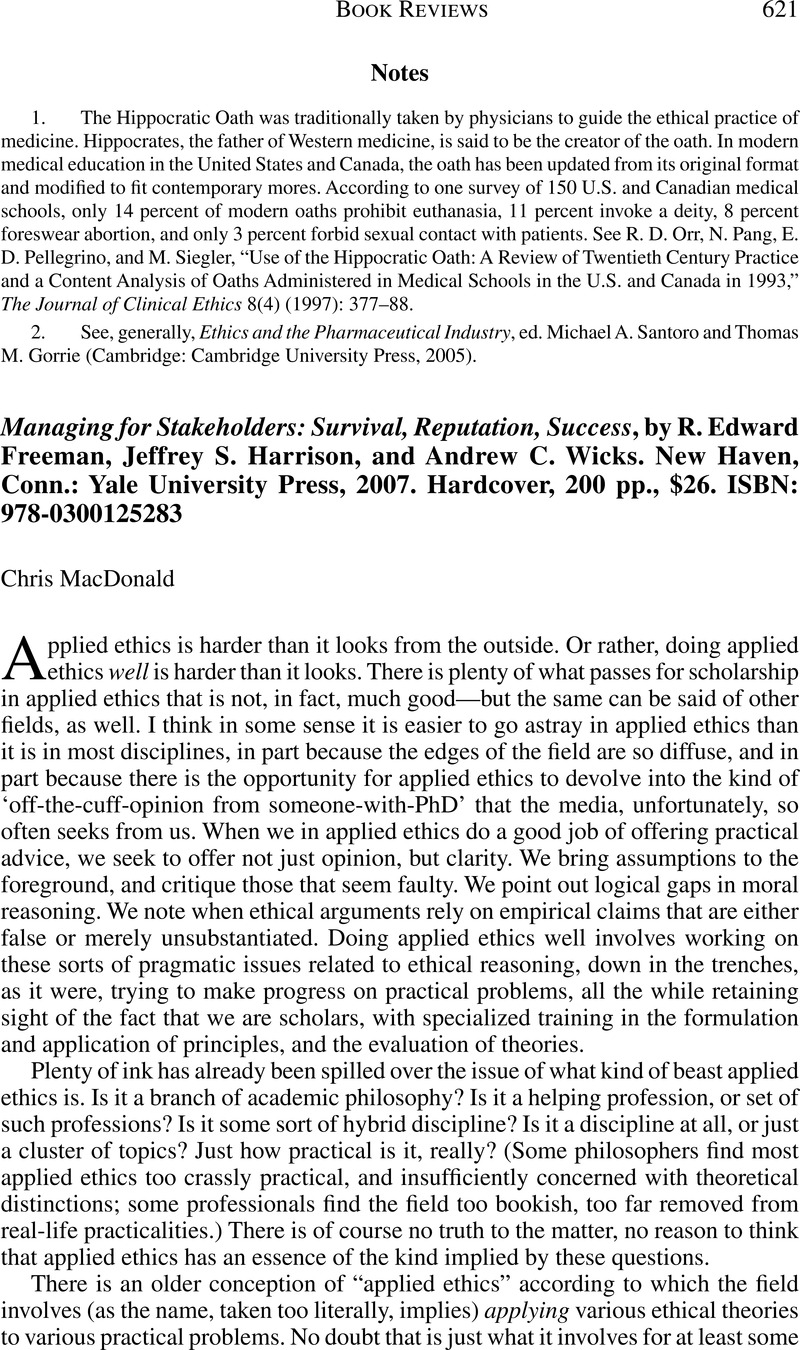Published online by Cambridge University Press: 23 January 2015

The writing of this review benefited greatly from a lively reading group held at the University of Montreal's Centre de recherche en éthique (CRÉUM) during the summer of 2008. The author wishes to thank the members of that group: Caroline Allard, P.-Y. Néron, and Dominic Martin, though they are not responsible for the views expressed here.
1. Managing for Stakeholders, vii.
2. Ibid., viii.
3. Ibid., 130.
4. Ibid., 22. As I understand those terms, “managerial capitalism” describes a certain kind of relationship between managers and owners; “laissez faire capitalism” refers to a certain kind of relationship between corporations and the state. There might be some (contingent) relationship between the two, but they're not the same thing.
5. Ibid., viii.
6. Ibid., 4.
7. See, for example, Boatright, John, “Contractors as Stakeholders: Reconciling Stakeholder Theory with the Nexus-of-Contracts Firm,” Journal of Banking & Finance 26 (2002): 1837–52.CrossRefGoogle Scholar
8. Managing for Stakeholders, 25.
9. Ibid., 5.
10. Ibid.
11. Ibid., 11.
12. Ibid., 36.
13. Another exception that proves the rule: On p. 23, the authors mention, dismissively, the recent trend to shape executive compensation in a way that aligns the interests of executives with those of shareholders.
14. See Managing for Stakeholders, 4, 10, and elsewhere.
15. Note that it is the expectation of benefit, not benefit itself, that distinguishes commerce from crime. Benefit cannot be guaranteed; even with the best of intentions, exchanges can fail, in the long run, to satisfy.
16. The authors’ argument that the role of managers should be to create value is an example of what is known as “the fallacy of division,” the idea that the characteristics of the whole must also be characteristics of its parts.
17. Interestingly enough, the first sentence of the preface of Freeman's 1984 book is this: “Managers in today's corporation are under fire.” It seems little has changed, in this regard. See Freeman, R. Edward, Strategic Management: A Stakeholder Approach (Boston: Pittman, 1984), v.Google Scholar
18. Managing for Stakeholders, p. viii.
19. Ibid., ix.